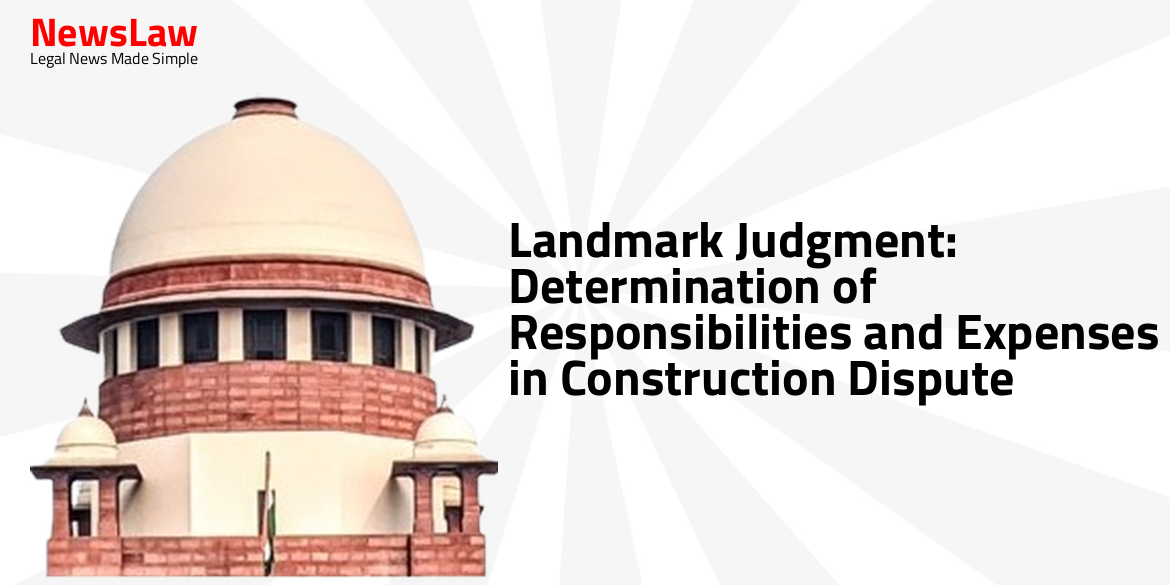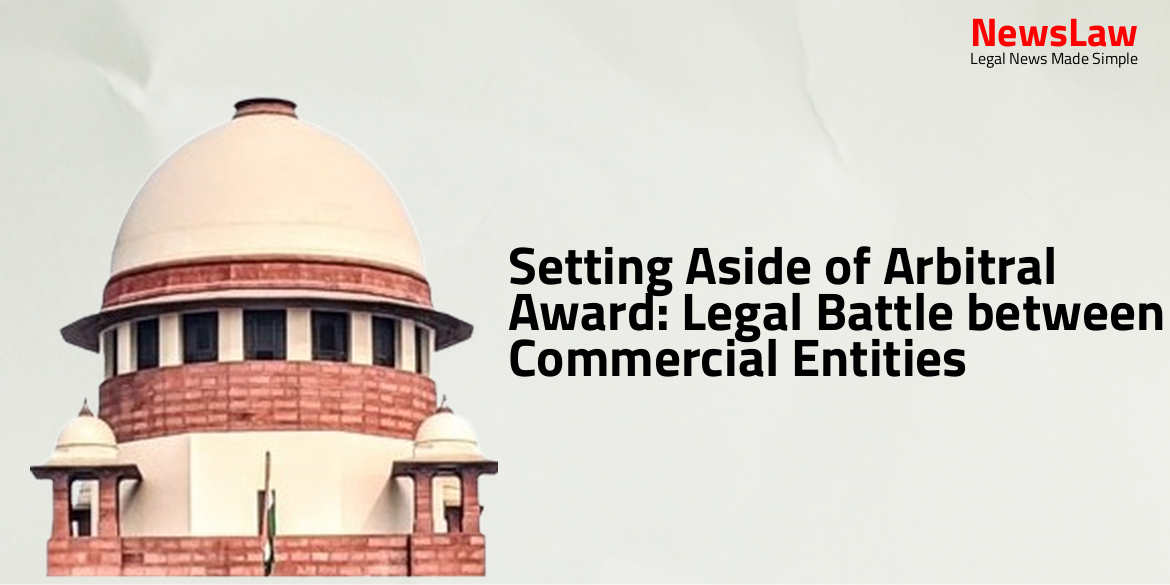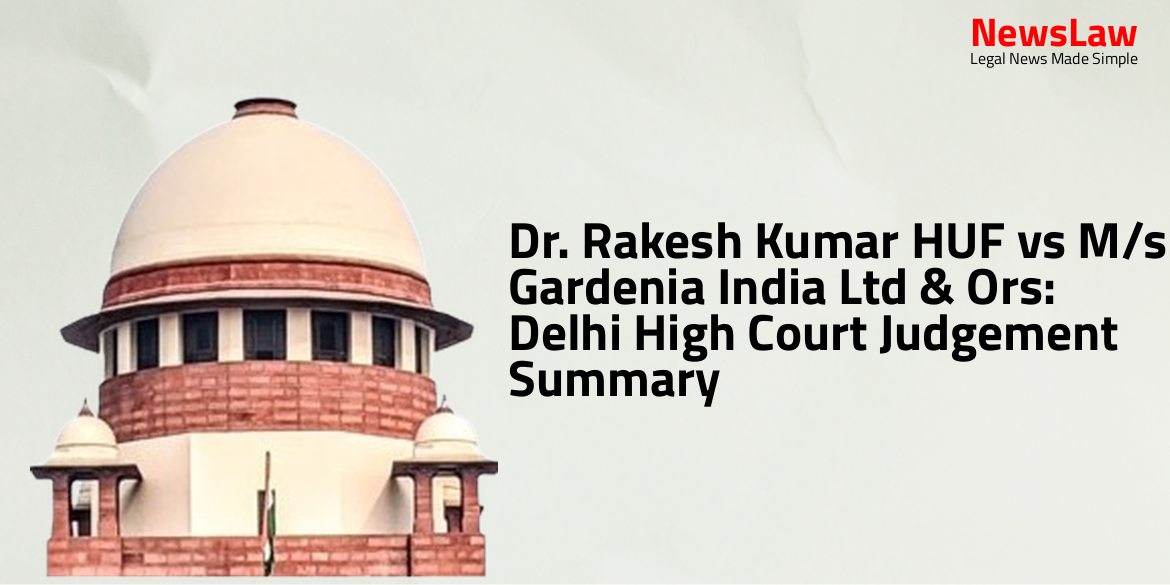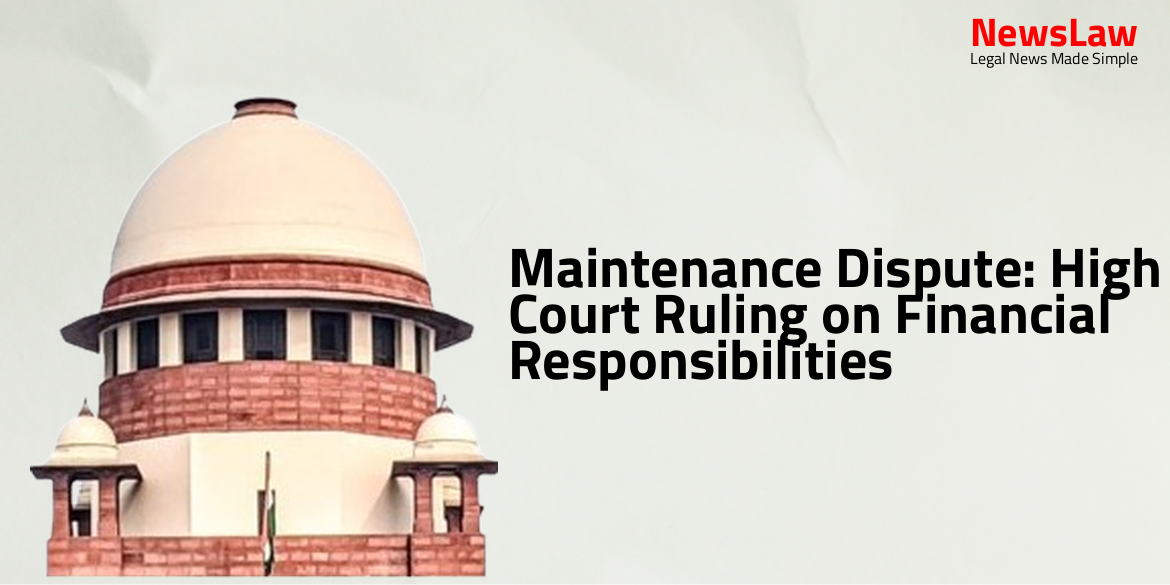In a significant legal milestone, the Delhi High Court recently delivered a crucial judgment in a construction dispute highlighting the obligations and cost-sharing between the parties involved. The case, which featured intricate details of responsibilities, challenges, and completion issues, provided clarity on the roles of the Developer and the Owners. The ruling considered key clauses of the Collaboration Agreement to determine the respective obligations, ultimately bringing resolution to the long-standing dispute.
Facts
- The Collaboration Agreement allocated 62.5% share in the project to the Developer and 37.5% share to the Owners.
- The dispute arose regarding responsibility and expenses for permissions, NOCs, permits, and additional FAR/FSI approvals.
- The Arbitrator determined that the Owners and the Confirming Party were responsible for permissions and NOCs, while the Developer bore the costs of construction.
- The project faced challenges such as revocation of NOC in 2012 and subsequent sealing in 2017 and 2018 due to non-payment of charges.
- The Arbitrator analyzed specific clauses of the Collaboration Agreement to support the allocation of responsibilities and expenses between the parties.
- Claims and counterclaims were raised by both parties in the arbitration, with the Arbitrator partially allowing counterclaims by the Developer.
- The Arbitrator awarded a sum of ₹12,01,01,524 to the Developer, inclusive of interest until the date of the award and future interest at 9% per annum.
- Key clauses of the Collaboration Agreement such as Clause 1(d), 13, 15, 31, and 32 were pivotal in determining the respective obligations of the parties.
- The case involved intricate details of cost-sharing, liability allocation, and completion challenges of the construction project.
- The Arbitrator found that after the Collaboration Agreement, construction costs were the responsibility of the respondent.
- Clause 31 specified an exception where financial liability for permissions, sanctions, and NOCs was to be shared in proportion to their shares in the building, up to a cap of ₹11 crores for the respondent.
- The claim was allowed for ₹65,78,236, inclusive of interest until 30.06.2023.
- The claim was supported by invoices, bills, and witness testimonies that were not challenged.
- Petitioner’s vague denial led the Arbitrator to accept the claim for specific periods where construction was halted.
- A payment of ₹9 crores was acknowledged in the counterclaim, which was not disputed by the petitioner.
- The Arbitrator ruled against the respondent on the remaining balance of the claim and awarded ₹9 crores with reduced interest of 9% per annum.
- Counterclaim No 3 sought recovery of ₹66,53,019 for fixed expenses at the project site from May 2017 to January 2019.
Arguments
- Statutory demands were not deposited by the petitioner and respondent No 2 as a pre-condition for sanction of additional FAR/FSI.
- The sealing of the project was a result of the failure to fulfill these statutory demands.
- The learned Arbitrator relied on both documentary and oral evidence to support this conclusion.
- The learned Arbitrator has rejected the contention of Mr. Pathak that Mr. Pathak was in breach of the Collaboration Agreement, and thus not entitled to compensation for deprivation of the share of 37.5% allocated to him and Mr. Pathak in the completed project.
- No evidence was found to support the claim of Mr. Pathak in the communication relied upon, or any evidence of the claim being paid.
- Mr. Pathak had no right to any amount recovered by Mr. Pathak towards his share of 62.5% in the project, as there was no evidence to support that the amount had been received on his behalf.
- Claim for reimbursement of the penalty of ₹50 crores imposed by GDA was made, and it was found that Mr. Pathak had made payments which were supposed to be made by him to save the project.
- Counterclaim of ₹39,57,37,077/- was made on the grounds of loan/financial assistance given by Mr. Pathak to other parties, with all other counterclaims being rejected.
- Partially allowed counterclaim up to ₹11,35,23,288/- inclusive of simple interest at 9% per annum until the date of the award.
- Regarding rendering of accounts by Mr. Pathak, the claim was deemed vague and unexplained, and the Arbitrator found that Mr. Pathak was not liable to render accounts to Mr. Pathak on any ground, including for amounts collected for bookings and construction costs.
- Analysis of the two counterclaims of Mr. Pathak was partly allowed, dealing with the amounts collected as booking amounts from the public, which were required to be deposited towards dues of GDA and government/statutory dues.
Analysis
- Developer must indemnify and keep the Owner & PDTLA indemnified against all claims and losses resulting from any defaults on the Developer’s part.
- Developer is responsible for obtaining necessary insurance under the Workman’s Compensation Act.
- Developer must meet all claims and proceedings related to the project and indemnify the Owner & PDTLA against them.
- Owner is not responsible or liable for any claims related to the project as long as the work is in progress.
- The Arbitrator’s findings are based on an interpretation of the contractual clauses discussed earlier.
- The contract clause has an exception when the construction progress is hindered by the petitioner or the other party.
- The project delays were due to the site being sealed multiple times, attributed to the petitioner and the other party.
- The Arbitrator rightly considered the clauses of the Collaboration Agreement in conjunction with specific clauses.
- Clause 9 of the Collaboration Agreement sets a strict 36-month time schedule as crucial to the Agreement.
- The Agreement allows a grace period of 6 months for the developer in case of delays in delivering the agreed share.
- The Arbitrator rejected the petitioner’s ₹200 crore claim based on interpretation and evidence analysis.
- All claims by the petitioner were dismissed, while two counterclaims by Respondent No. 1 were allowed.
- Clause 16 deals with the obligations of the parties, finding no indication that Respondent No. 1 was responsible for the costs leading to the project sealing.
- The Arbitrator’s interpretation led to the disposal of claims and counterclaims based on the parties’ responsibilities and obligations outlined in the Agreement.
- The Owner & PDTLA’s responsibility is limited to payment of outgoings and using good quality materials in construction.
- Clause 12 allows the execution of a power of attorney in favor of Respondent No. 1 for obtaining necessary permissions for development and construction.
- The parties are obligated to proceed with construction work steadily to meet the agreed-upon time schedule.
- Mr. Pathak did not present any missed evidence or unsupported findings to justify setting aside the arbitral award.
- The petitioner did not meet the criteria for interference with the award under Section 34 of the Act.
Decision
- The petition has been dismissed along with any pending applications.
Case Title: PROTO DEVELOPERS AND TECHNOLOGIES LTD Vs. M/S ANTRIKSH REALTECH PVT LTD & ANR. (2024:DHC:3843)
Case Number: O.M.P. (COMM)-98/2024



